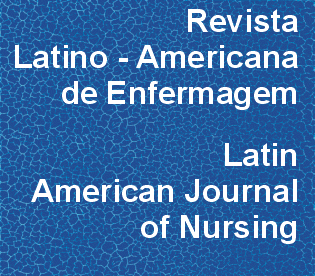Living and working conditions of the professionals of the a Mobile Emergency Service
DOI:
https://doi.org/10.1590/S0104-11692011000400022Keywords:
Emergency Medical Services, Emergency Medical Technicians, AmbulancesAbstract
The assistance provided by the Mobile Emergency Service (SAMU) may result in changes in the health of the workers. This is a cross-sectional epidemiological study which aimed to evaluate the sociodemographic, health and lifestyle characteristics and the working conditions among professionals of the SAMU in Campinas, SP, Brazil. A questionnaire was used to collect sociodemographic, lifestyle, health and work data. The sample consisted of 197 workers - nurses, physicians, nursing technicians, auxiliary nurses, drivers and administrative personnel. There was a prevalence of males (61.4%), mean age 39.1 years (SD=8.3); married (63.5%), with children (76.7%); of the category of drivers (30.5%), monitored by physicians (18.3%) and auxiliary nurses (16.8%); 42.1% had additional employment, 48% performed overtime and 25.3% worked more than 70 hours per week. The majority practiced physical (56.5%) and leisure (96.5%) activities. New facets of the life of these workers were revealed and may contribute to programs aimed at health promotion.Downloads
Download data is not yet available.
Downloads
Published
2011-08-01
Issue
Section
Editorial
License
RLAE’s authorship concept is based on the substantial contribution by each of the individuals listed as authors, mainly in terms of conceiving and planning the research project, collecting or analyzing and interpreting data, writing and critical review. Indication of authors’ names under the article title is limited to six. If more, authors are listed on the online submission form under Acknowledgements. The possibility of including more than six authors will only be examined on multicenter studies, considering the explanations presented by the authors.Including names of authors whose contribution does not fit into the above criteria cannot be justified. Those names can be included in the Acknowledgements section.
Authors are fully responsible for the concepts disseminated in their manuscripts, which do not necessarily reflect the editors’ and editorial board’s opinion.
How to Cite
Living and working conditions of the professionals of the a Mobile Emergency Service . (2011). Revista Latino-Americana De Enfermagem, 19(4), 1018-1024. https://doi.org/10.1590/S0104-11692011000400022



